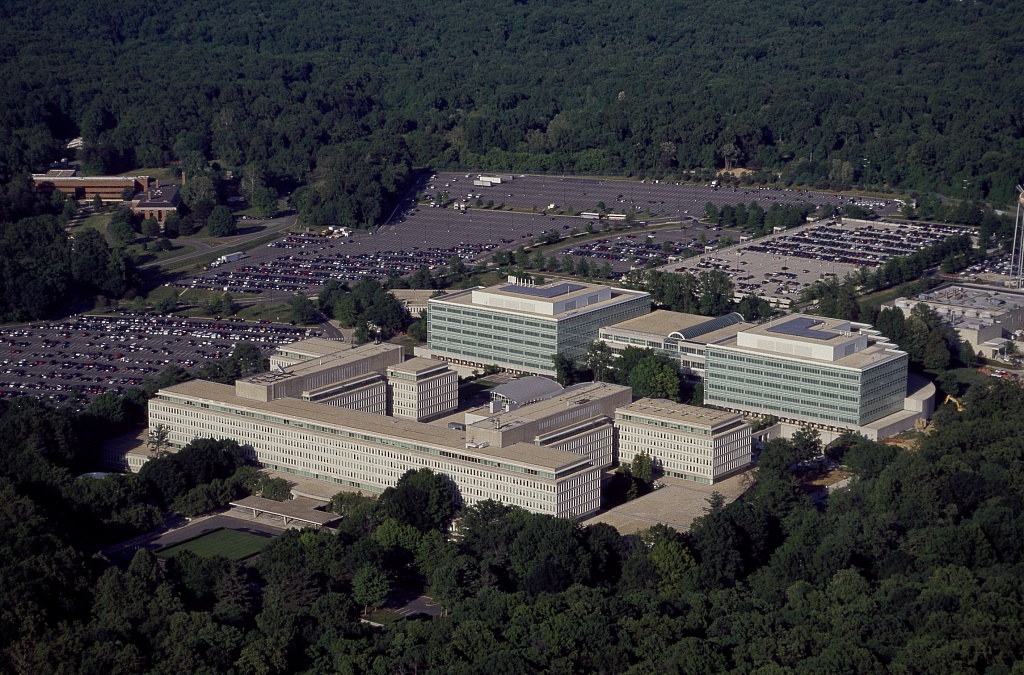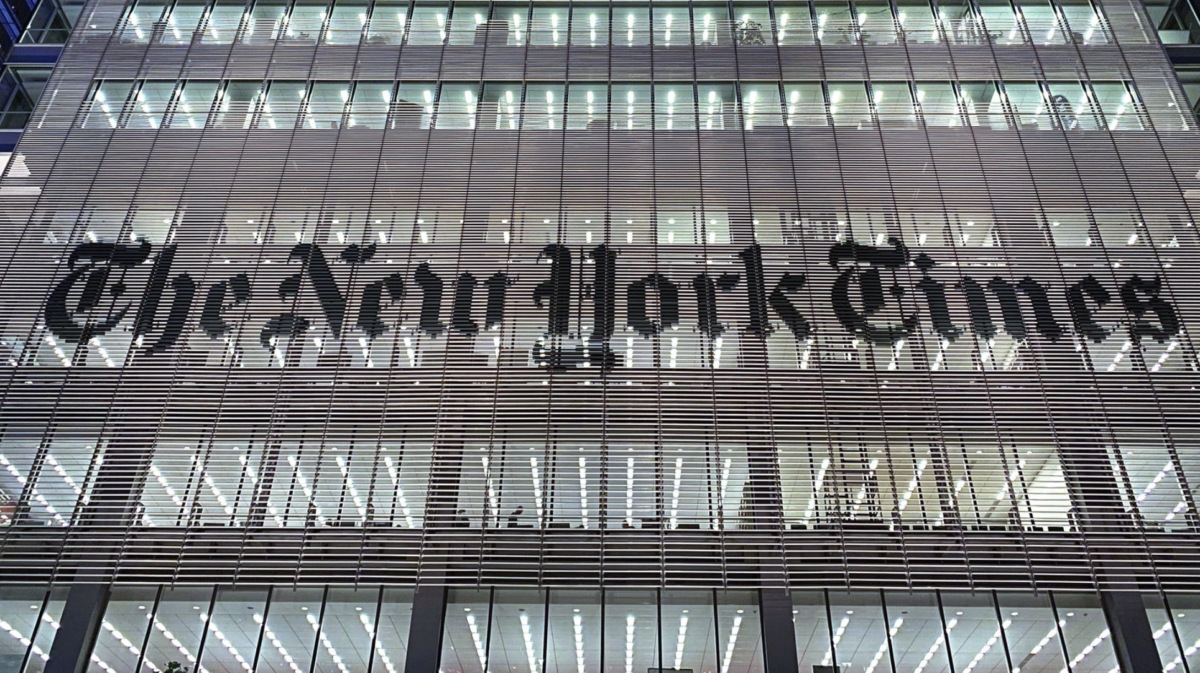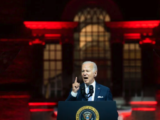The Big Picture –
By Glynn Wilson –
WASHINGTON, D.C. — It was interesting to see what CIA Director William J. Burns had to say about all the craziness going on in the world and the role of “intelligence” in a recent Washington Post guest column, especially considering he had previously turned down an interview request from The New York Times, but agreed to appear on CBS’s “Face the Nation” a couple of times.
The Public Affairs officer for the CIA has refused to even bother to reply in email or call me back on the telephone to answer my questions over the past few years. I have quite a few. Questions that is.
This essay that appeared on the Post‘s website was adapted from remarks Burns delivered July 1 for the annual Ditchley Foundation lecture in Oxfordshire, England, entitled “A World Transformed and the Role of Intelligence.â€
He got his start as a young American diplomat under Secretary of State James Baker, the tough bulldog Republican mouthpiece for Ronald Reagan and George H.W. Bush.
It must have been in the late 1980s, because he claims it was one of those rare “plastic moments†in history, although it’s not entirely clear from his profile on Wikipedia: William J. Burns (diplomat)
“The Cold War was ending, the Soviet Union was about to collapse, Germany would soon be reunified, and Saddam Hussein’s invasion of Kuwait would soon be defeated,” he wrote.
“It was a world of uncontested American primacy,” he claims. “History’s currents seemed to flow in our direction, the power of our ideas driving the rest of the world in a slow but irresistible surge toward democracy and free markets. Our sometimes overbearing self-assurance seemed well-founded in the realities of power and influence, but it also obscured other gathering trends,” he admits.
“Our moment of post-Cold War dominance was never going to be a permanent condition,” he acknowledges.
“History had not ended, nor had ideological competition. Globalization held great promise for human society, with hundreds of millions of people lifted out of poverty, but it was also bound to produce counter-pressures.”
That’s a bit of an understatement in retrospect. But you know what they say. Hindsight is 20/20.
Many on the other side of the political aisle might have a different view of the 1980s. It was a time when the idea of “shrinking” the federal government gained power, and even the great Ronald Reagan found it hard to find much to cut — considering the capitalistic and militaristic tendencies and intentions of what Trump and his MAGA people like to call “the Deep State.”
It was also a time when the environment came into its own as a social and political force. Reagan tried his half-hearted best to gut the environmental movement, but only made it stronger, culminating in a massive 20th Anniversary of Earth Day in 1990 and the election of Bill Clinton as president — with Al Gore as Veep — in 1992.
So in a transition memo Burns drafted for the incoming Clinton administration at the end of 1992, he says, hee tried to capture the dim outlines of the challenges ahead.
“While for the first time in fifty years we do not face a global military adversary,†I wrote, “it is certainly conceivable that a return to authoritarianism in Russia or an aggressively hostile China could revive such a global threat.â€
He tried, he says “however imperfectly” to highlight the risks that democracies and free markets would inevitably face in a world in which economies were globalizing but, as he put it at the time, “the international political system was tilting schizophrenically toward greater fragmentation.â€
And he tried, as best he could, he says, to sketch the shared global threats already posed by climate change and health insecurity, especially the raging HIV/AIDS epidemic.
“For the next quarter-century, I remained a proud and very fortunate American diplomat, serving mostly in Russia and the Middle East, and in senior positions in Washington,” he writes. “I shared in diplomatic successes, and made my share of mistakes, as America’s unipolar moment faded and some of what I had tried to foresee in that long-ago transition memo began to unfold.”
Now as CIA director under President Joe Biden, he claims we are now facing “another plastic moment — in a world that is far more crowded, complicated and contested than the one I experienced in those heady days as a young diplomat three decades ago. It is a world in which the United States is no longer the only big kid on the geopolitical block — a world in which humanity faces both peril and promise.”
He sees his job as helping President Biden and senior policymakers “understand and shape a world transformed. ”
“And as the president reminds us, we are at an inflection point. The post-Cold War era is over,” Burns says. “Our task is to shape what comes next — investing in our foundational strengths and working in common cause with our unmatched network of alliances and partnerships — to leave for future generations a world that is more free, open, secure and prosperous.”
Yet “That is a very tall order,” he admits.
“Our success will depend on our ability to navigate a world” with three distinctive features as he sees it.
* First is the challenge of strategic competition from a rising and ambitious China — and from a Russia that constantly reminds us that declining powers can be at least as disruptive as rising ones.
* Second are the problems without passports, such as pandemics and the climate crisis, which are beyond the reach of any one country to address and are growing more extreme and existential.
* And third is the revolution in technology, which is transforming how we live, work, fight and compete, with possibilities and risks we can’t yet fully grasp.
“Those singular challenges sometimes conflict with one another, with cooperation on shared global problems both more vital and more difficult, too often the victim of strategic competition,” he says. “And the revolution in technology is both a main arena for that competition and a phenomenon in which some basic partnership is crucial to set rules of the road.”
* He says THE most immediate and acute challenge to international order today is Vladimir Putin’s full-scale invasion of Ukraine.
As someone who has spent a fair amount of time in Russia, as ambassador to Russia from 2005 to 2008 and a stint as minister-counselor for political affairs at the U.S. Embassy in Moscow, Burns says he’s spent much of the past two decades trying to understand and counter the combustible combination of “grievance, ambition and insecurity that Putin embodies.”
“One thing I have learned is that it is always a mistake to underestimate Putin’s fixation on controlling Ukraine and its choices, without which he believes it is impossible for Russia to be a major power or him to be a great Russian leader,” he points out. “That tragic and brutish fixation has already brought shame to Russia and exposed its weaknesses while evoking the breathtaking determination and resolve of the Ukrainian people.”
Putin often insists that Ukraine is “not a real country,†he says, one that it is “weak and divided.”
But as Putin has discovered, he says, “real countries fight back. And that is what Ukrainians have done, with remarkable courage and tenacity. They will not relent, nor will all of us who support Ukraine.”
Burns says Putin’s war has already been a strategic failure for Russia — “its military weaknesses laid bare; its economy badly damaged for years to come; its future as a junior partner and economic colony of China being shaped by Putin’s mistakes; its revanchist ambitions blunted by a NATO that has only grown bigger and stronger.”
Less than a month ago, he says, we were riveted by the scenes of Yevgeniy Prigozhin’s armed challenge to the Russian state, with Wagner Group paramilitary forces briefly seizing Rostov-on-Don and moving two-thirds of the way to Moscow before turning back.
“As President Biden has made clear, this is an internal Russian affair, in which the United States has had and will have no part,” he insists.
He says it’s striking that Prigozhin preceded his actions with a scathing indictment of the Kremlin’s mendacious rationale for its invasion of Ukraine, and of the Russian military leadership’s conduct of the war.
“The impact of those words and those actions will play out for some time, a vivid reminder of the corrosive effect of Putin’s war on his own society and his own regime.”
Russia’s aggression poses a formidable test, he says.
“But China is the only country with both the intent to reshape the international order and, increasingly, the economic, diplomatic, military and technological power to do so.”
Making the case and about the strategic threat from China — not just to the American people but his entire staff and the rest of the federal government — Burns says “the issue is not China’s rise per se” but the actions that accompany it.
“President Xi Jinping is embarking on his third term with more power than any Chinese leader since Mao. And rather than use that power to reinforce, revitalize and update the international system that enabled China’s transformation, Xi seeks to rewrite it,” he says.
In the intelligence profession, they study carefully what leaders say.
“But we pay special attention to what they do, and here Xi’s growing repression at home and aggression abroad — from his no-limits partnership with Putin to his threats to peace and stability in the Taiwan Strait — are impossible to ignore,” he said.
What’s also impossible to ignore is the fact that, in this new era, our competition is taking place against the backdrop of thick economic interdependence and commercial ties.
“These ties have served our countries, our economies and our world remarkably well — but they have also created strategic dependencies, critical vulnerabilities, and serious risks to our security and prosperity.”
Covid made clear to every government the danger of being dependent on any one country for lifesaving medical supplies, Burns pointed out, just as Putin’s aggression in Ukraine has made clear to every government the risks of being dependent on one country for energy supplies.
“In today’s world, no country wants to find itself at the mercy of a cartel of one for critical minerals and technologies — especially a country that has demonstrated the will and capacity to deepen and weaponize those dependencies.”
The answer to that is not to decouple from China’s economy, he says, which would be foolish, but to sensibly de-risk and diversify by securing resilient supply chains, protecting our technological edge and investing in industrial capacity — which is exactly what the Biden administration is trying to do, with no help from the MAGA Republicans now with a controlling majority in the House.
“In a more volatile and uncertain world, in which power is more diffuse, the weight of the hedging middle is growing,” Burns says. “Democracies and autocracies, developed and developing economies, and countries from the Global South and other parts of the globe are intent on diversifying their relationships in order to expand their strategic autonomy and maximize their options. These countries see little benefit and lots of risk in monogamous geopolitical relationships.”
It’s his view that we’re likely to see more countries pursue more open relationships than we were accustomed to over several post-Cold War decades of unipolarity.
“And if past is precedent, we ought to be attentive to rivalries between so-called middle powers — which have often been the match that ignited collisions between major powers,” he warns.
“What’s more,” he says, “we do not have the option of focusing on a single geopolitical pacing threat. We face an equal threat to international order and indeed to the lives and livelihoods of our people from shared or transnational challenges, of which the climate crisis poses the most clear and present danger.”
Climate Change is Here
We can no longer talk about “tipping points†and “catastrophic climate impacts†in the future tense, he says.
“They are here and now, imperiling our planet, our security, our economies and our people.”
Burns mentions the recent hazy view from CIA Headquarters in Langley, Va. across the Potomac River, and the choking air “subjecting your lungs to hazardous materials because of smoke from hundreds of wildfires across Canada.”
Climate change is the quintessential “threat multiplier,†he says, “fueling energy, health, water and food insecurities, setting back our progress on economic and human development, turbocharging what is already the worst period of forced displacement and migration in history, and further exacerbating instability and geopolitical tensions and flash points.”
These two threats — geopolitical and transnational — are impossible to disentangle, he says.
“Competition makes cooperation more difficult. But we’re going to have to have both,” he insists. “And we’re going to have to do both in the face of another immensely powerful force: a revolution in technology more profound than the Industrial Revolution or the dawn of the nuclear age.”
Advances in computing-related technologies are leading to breakthroughs of remarkable scale and scope. In just the few months since the first public version of ChatGPT debuted in November, we’ve seen newer models outperform humans in graduate-level entrance exams, and in assessments of doctor-to-patient engagements in medical training programs.
We see this “hockey stick†trendline time and again, outstripping our expectations, imaginations and capacity to govern the use of enormously powerful technologies — “for good or for ill,” he admits.
“Nowhere is that more evident than in biotechnology and biomanufacturing — which can unlock extraordinary climate and health solutions and boost our economies, but whose abuse and misuse could lead to catastrophe.”
Leadership in technology and innovation has underpinned our economic prosperity and military strength, he says. It has also been critical to setting rules, norms and standards that safeguard our interests and our values.
“Our Chinese rivals understand that as well as anyone, and it is therefore no surprise that they are investing heavily in emerging technologies as a central dimension of our strategic competition.”
How, then, he asks, do we approach the role of intelligence in this world that has been transformed by strategic competition, challenges that don’t recognize borders and a revolution in technology without precedent in human history?
“When the president sent me to Moscow before the war, in early November 2021, I found Putin and his senior advisers unmoved by the clarity of our understanding of what he was planning, convinced that the window was closing for his opportunity to dominate Ukraine,” he says. “I left even more troubled than when I arrived.”
“Good intelligence” has helped President Biden mobilize and sustain a strong coalition of countries in support of Ukraine, Burns says, and “good intelligence has helped Ukraine defend itself with such remarkable bravery and resolve, and to launch the crucial counteroffensive now underway.”
He made the case that the careful declassification of some U.S. secrets was part of a novel and effective strategy shaped by the president and senior policymakers “helped deny Putin the false narratives that I have watched him so often invent in the past — putting him in the uncomfortable and unaccustomed position of being on his back foot.”
Disaffection with the war will continue to gnaw at the Russian leadership, he says, beneath the steady diet of state propaganda and practiced repression.
“That disaffection creates a once-in-a-generation opportunity for us at the CIA, at our core a human intelligence service. We’re not letting it go to waste.”
The agency recently used social media — their first video post to Telegram — to let brave Russians know how to contact the U.S. safely on the dark web.
“We had 2.5 million views in the first week, and we’re very much open for business,” he says.
If Putin’s war in Ukraine is the most immediate challenge in strategic competition, “Xi’s China is our biggest geopolitical and intelligence rival — and most significant long-term priority.”
He says they’ve been organizing themselves at the CIA over the past couple of years to reflect that priority.
“We’ve set up a new mission center — one of the dozen or so organizational building blocks of the agency — focused exclusively on China,” he reveals. “It is the only single-country mission center we have at the CIA, and it provides a central mechanism for coordinating work on the China mission, which extends today to every part of the agency.”
They’re hiring and training more Mandarin speakers, and stepping up efforts across the world to compete with China, from Latin America to Africa to the Indo-Pacific.
“We’ve also sought to quietly strengthen intelligence channels with China,” he says. “These discreet channels are an important means of insuring against unnecessary misunderstandings and inadvertent collisions, and complementing and supporting policymaking channels, such as Secretary of State Antony Blinken’s recent visit to Beijing.”
Even as Russia and China consume much of our attention, he says, “we can’t afford to neglect other pressing challenges on today’s new and complicated landscape.”
The successful U.S. strike last summer against Ayman al-Zawahiri, a co-founder and former leader of al-Qaeda, was a reminder of the capability and determination still focused on terrorist threats, he points out.
“For many years to come, we will have to perform a delicate balancing act, juggling renewed major-power rivalry with all sorts of other challenges.”
We’re also in the midst of the most profound transformation of espionage tradecraft since the Cold War, he says.
“In an era of smart cities and ubiquitous technical surveillance, spying is a formidable challenge,” he says. “For a CIA officer working overseas in a hostile country, meeting sources who are risking their own safety to provide us information, constant surveillance is a very risky business. But the same technology that sometimes works against us — whether it’s mining big data to expose patterns in our activities or massive camera networks — can also be made to work for us and against our rivals.”
Technical collection platforms are enormously important in today’s intelligence world, he said.
“But there will always be secrets we need a human to collect and clandestine operations only a human can execute. Our officers are doing hard jobs in hard places around the world, often operating in the shadows, out of sight and out of mind, the risks they take and the sacrifices they make rarely well-understood.”
He says for CIA analysts, the revolution in artificial intelligence and machine learning, and the avalanche of open-source information, creates new opportunities.
“When harnessed properly, AI can find patterns and trends in vast amounts of open-source and clandestinely acquired data that the human mind can’t, freeing up our officers to focus on what they do best,” he said. “Providing reasoned judgments and insights on what matters most to policymakers and what means most for our interests.”
Another critical priority in this new era is to deepen our intelligence partnerships around the world and renew our commitment to intelligence diplomacy, he closes.
“At its core, the intelligence profession is about human interactions, and there is no substitute for direct contact to deepen ties with our closest allies, communicate with our fiercest adversaries,” he says, “and cultivate everyone in between.”
The Role of News Organizations
One of the questions I have for Burns he only hints at an answer in his presentation. It has to be with great consternation that traditionalists like Burns watch as the press and the economy for the press in this country is decimated by some of this new technology — spurred on by those anarchists like Steve Bannon and Trump who would destroy any shared narrative of facts we had before, even with traditional broadcast news media.
The agency may figure out how to use social media toys for counterintelligence. But when the goals and mission of representative democracy become so fragmented that half “the people” are on the wrong page, fighting for authoritarianism in the name of democracy, how can anyone expect to forge a mass public consensus on how to face the threat from China, Russia or tackle climate change?
If the reporting of solid, factual information — along with the need for an educated populace — are no longer valued by a huge block of American society, what chance do we have to compete?
The Deep State can’t do it all alone. The federal government will need the smartest, most educated people in the world armed with the most factual information, or data, to make tactical and strategic decisions into the future.
Together with NASA and other federal agencies, we could find ways to aspire to some of the things we see in popular si-fi movies, such as the most recent interpretations of Star Trek, now playing on Netflix.
But for now there has to be sharing of information between this government and what’s left of the press online, and the attacks on the press on the right have to be stopped!
Throughout American history, there have been rumors of cooperation if not outright collusion between the CIA and the press. Journalists working abroad are often accused of being “spies.” Some were killed in the conflicts in the Middle East. A Wall Street Journal reporter is now in prison and charged with “espionage” in Putin’s Russia. In many parts of the world, even identifying yourself as a journalist can get you killed, including Latin America.
The great Ben Bradley of The Washington Post once denied a direct involvement in a book, only admitting that he sometimes caught free rides back from covering stories overseas to Washington thanks to the CIA and the military.
The way I see it, while we should always keep a professional distance with sources, the goals and mission of the American press should not be seen as so different from the goals and mission of federal agencies, especially the CIA. It was formed in the aftermath of World War II for the explicit purpose of recruiting the smartest people to help protect democracy at home and promote the ideals of democracy around the world.
The agency has made many mistakes and gotten itself involved in blunders too numerous to detail here. You know what they are, and so do all of us who have been watching over the past 40 years, reading and working for The New York Times and wire services such as UPI.
The press too has made mistakes as well.
Politicians make mistakes. Everybody makes mistakes.
In one mistake, in my life, the CIA hired a rogue agent to get directly involved in the press by getting himself hired as my editor at a chain of newspapers on the Gulf Coast, and trying to change the trajectory of a story I was covering. I’m not going to take the time or space to tell that whole story here. I’ve written about it before.
Havana Syndrome Clearly Caused by Directed Energy Weapon
It’s a chapter in my memoir.
Jump On The Bus: Make Democracy Work Again
But for literally and actively interfering with the press in that instance, the way I see it — and I’ve never said this anywhere before but it really is how I feel — the CIA owes me.
Google also owes me, but that’s another story.
Things actually worked out pretty well for me after that little incident, and they may have done me a favor in the long run. I decided not to become a drunk beach bum and went back to grad school, just as the internet was about to explode on the scene.
Yet it still pisses me off to this day.
So I have questions.
Director Burns, won’t you answer my questions?















